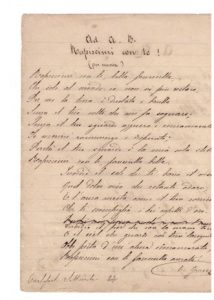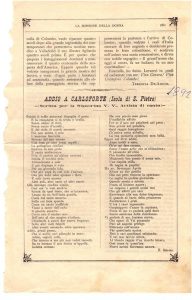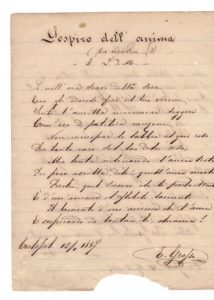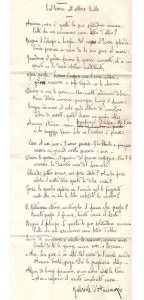Enrico Grasso is one of the sons of Carloforte who lived in the 1900s who became distinct during their existence for the culture they possessed and for the civil and social commitment of the island community.
Enrico Grasso was born in Carloforte on 29 January 1863 by Angelo Puggioni and Maddalena Ratto, according to the genus of seven children.Ben soon became orphaned father and due to the economic difficulties he had stopped studying at the third elementary being forced to go to work for not Be family weight. The young Enrico succeeded thanks to his enthusiasm and his ability to get off right away.
The young Enrico succeeded thanks to his enthusiasm and his ability to get off right away.
At the end of the eighteenth century when he was already a well-established tissue shop owner, we find him a councilor and in 1901 he is one of the founding members of the Mutual Relief and Retirement Society in which he has been working for a number of years Mayor.
But if Enrico Grasso managed to rise from precarious economic conditions with just as much capacity, he alone, completed and refined his studies. He was an authentic self-taught person
who did not just know Italian, history and philosophy, but also learned English, French and German. He did not obtain any degree of study, but for his great culture, all recognized, he was appointed director of the evening classes organized by the Mutual Relief and Retirement Society for members and their children, a task which he absolved free of charge. He was also called by Commissioner Prefecture De Candia in 1914 to be part of the committee to examine and approve the budget budget of the municipality. Enrico Grasso “Enrichetto da Cappella” as it was known in Carloforte is remembered (not many) for writing the romances “Rapiscimi” and “Soul of the soul” that on Pasquale Lion’s music (1861-1933) won the first prize Respectively in 1898 at an international competition taking place in Palermo.
Enrico Grasso “Enrichetto da Cappella” as it was known in Carloforte is remembered (not many) for writing the romances “Rapiscimi” and “Soul of the soul” that on Pasquale Lion’s music (1861-1933) won the first prize Respectively in 1898 at an international competition taking place in Palermo.
Few know that even before he was a poet. His first collection of poems published it in 1891 by the printing company Timon of Cagliari. It is a selection of 20 sonnets entitled “Pain” all inspired by the premature death of her sister Francesca Teresa Maria called all Franchinetta deceased in 1889 at the age of 23.
Probably “Pain” was not his only collection of poems. Others, perhaps, were published under the title of intimate pages 2 and the “Voice of Things.” Many of these poems were published in the magazines “Star of Sardinia” and “Sarda Vita” to which he collaborated for a long time.
She knew Vate, Gabriele D’Annunzio, who would have published one or more poems on a magazine.
For the biography they are thankful l’Associazione Culturale Saphyrina e Salvatore Borghero.





